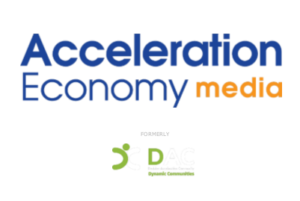How D365FO Supports Corporate Sustainability Reporting Directive (CSRD) Compliance


The introduction of the Corporate Sustainability Reporting Directive (CSRD) presents a significant shift in how businesses must account for their environmental, social, and governance (ESG) efforts. For users of Dynamics 365 Finance & Operations (D365FO), meeting these new requirements can be streamlined by leveraging the platform’s diverse capabilities. Here’s a closer look at how D365FO can assist businesses in achieving CSRD compliance efficiently and effectively.
Centralized Data Collection and Management
Comprehensive and reliable data is foundational to effective CSRD reporting. Dynamics 365 Finance & Operations provides a robust framework for managing sustainability-related data, ensuring accuracy and consistency.
Acting as a centralized hub for financial and operational data, D365FO enables businesses to maintain a single source of truth. Having a unified data repository is essential for generating accurate sustainability reports.
By adding custom fields and entities, Dynamics 365 F&O can be tailored to capture specific ESG data points required under the CSRD framework.
D365FO can connect with external systems and data sources with its seamless integration capabilities. This allows businesses to incorporate various departments’ environmental, social, and governance metrics into their reports.
Advanced Reporting and Analytics
Delivering detailed and precise CSRD disclosures is simplified with D365FO’s analysis and reporting tools, such as the Power BI dashboards, custom report development, and real-time insights. Users can leverage Power BI to create compelling visual dashboards that make complex data accessible to all stakeholders. Building tailored reports enables users to meet the specific formatting and content requirements outlined in CSRD guidelines. With near-time analytics capabilities, businesses can continuously monitor their progress on key sustainability metrics, ensuring they remain on track with ESG goals.
Process Automation for Efficiency
The scale of sustainability reporting requires businesses to focus on scalable, automated processes. D365FO offers several automation options to simplify workflows and reduce manual errors.
By using D365FO’s workflow management tools, users can automate processes like data collection, validation, and approvals. This will improve both efficiency and efficiency.
Users can take advantage of recurring data entry capabilities. This involves setting up recurring journals for sustainability data points, mirroring features seen in tools like Sustainability Journals from other Microsoft platforms.
Automated calculations can ensure accuracy and consistency. This involves programming formulas within D365FO to automatically compute specific metrics, such as carbon emissions or water consumption.
Compliance and Audit Readiness
Accurate reporting is only one part of the CSRD equation — ensuring compliance and auditability is equally critical. Dynamics 365 Finance & Operations equips businesses to maintain transparency and accountability throughout their sustainability reporting. Audit trails, enhanced security, and document management are a few key elements that support this.
D365FO’s robust audit tracking capabilities can be optimized to make sure every data modification is traceable. This helps businesses meet the accountability requirements under CSRD. Role-based access controls allow executives to be confident that only authorized personnel can enter or edit sustainability data. Enhancing security in this way will reduce the risk of errors or misuse. Organizing and storing all supporting documentation needed for CSRD disclosures within D365FO’s document management feature aids in simplifying auditing procedures.
Sustainability Enhancements Tailored to CSRD
While D365FO doesn’t offer prebuilt sustainability modules, it provides flexibility for customization to meet CSRD-specific needs.
For instance, users can build custom modules. By developing add-ons within D365FO, users can tailor modules to track and report sustainability metrics, similar to features found in other platforms like Business Central.
By modifying your chart of accounts, you can include sustainability categories; these may include emissions or renewable energy costs. This can lead to deeper financial and operational insights.
Third-party solutions can enhance your system’s capabilities. Integrating trusted third-party tools designed specifically for advanced sustainability tracking and reporting contributes to meeting those CSRD-specific needs.
Using D365FO for CSRD
Implementing CSRD compliance within your D365FO system requires thoughtful planning and adjustment. By following these steps, your organization will be better prepared to meet regulatory requirements effectively:
- Conduct a needs assessment: Analyze gaps in your current processes and identify areas where your system needs customization or additional integrations.
- Customize your system: Add required reporting fields and adapt your data-entry workflows to meet CSRD demands.
- Develop CSRD-specific reports: Using Power BI or D365FO’s reporting features, create custom reports that comply with the directive’s disclosure formats.
- Validate data accuracy: Establish quality control measures to ensure the integrity of sustainability data collected across departments.
- Train your team: Equip your employees with the knowledge needed to input data, manage workflows, and generate reports aligned with CSRD requirements.
- Regularly review and update: ESG and regulatory frameworks evolve. Conduct periodic reviews of your D365FO system to continue compliance.
By leveraging D365FO flexibility and advanced capabilities, organizations can streamline their sustainability reporting processes while building confidence in their compliance with CSRD.

AI Agent & Copilot Summit NA is an AI-first event to define the opportunities, impact, and outcomes possible with Microsoft Copilot for mid-market & enterprise companies. Register now to attend AI Agent & Copilot Summit in San Diego, CA from March 17-19, 2026.

